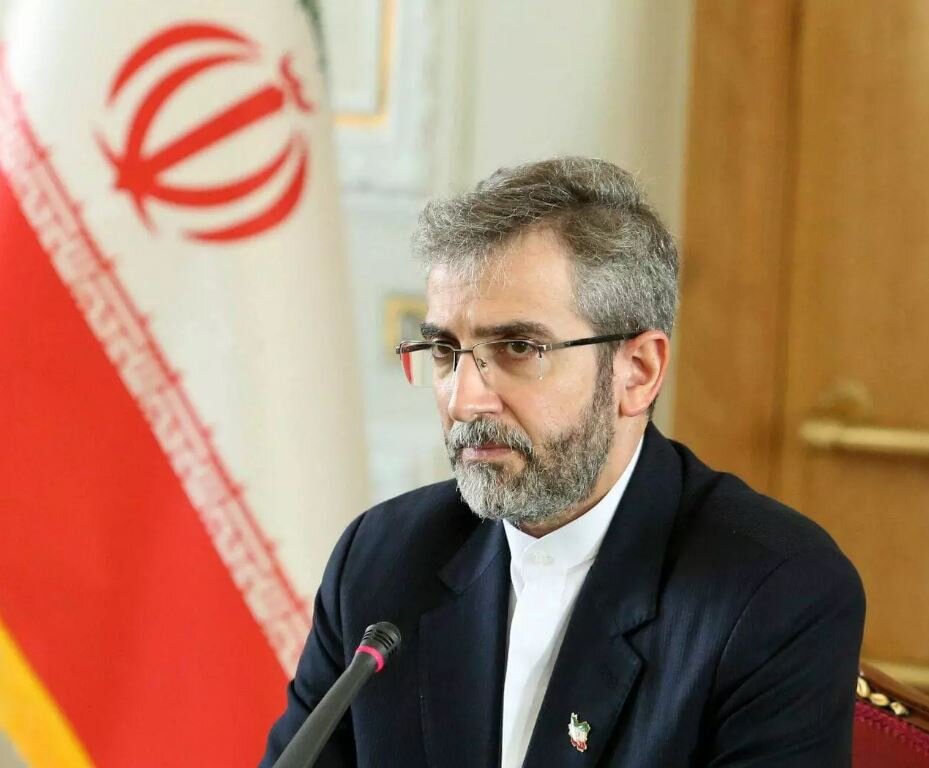No positive European JCPOA step in past two years: Iran acting FM

TEHRAN – Acting Minister of Foreign Affairs Ali Baqeri Kani of Iran has criticized Western nations for politicizing the International Atomic Energy Agency, highlighting that European parties to the 2015 Iran deal have not taken any constructive steps to reinvigorate the pact over the last two years.
"For the past two years, European nations have failed to make any constructive progress in negotiations. The Western parties, particularly three European countries, have transformed the IAEA into a platform for settling their political disputes with Iran, but their attempts will not be successful,” he said when talking to reporters on the sidelines of a cabinet meeting on Wednesday.
The IAEA Board of Governors adopted an anti-Iran resolution proposed by the European trio last week, which censures Tehran for its alleged “non-cooperation” with the UN nuclear watchdog.
The resolution calls on Iran to adhere completely to the restrictions established by the Joint Comprehensive Plan of Action (JCPOA), an agreement on Iran's nuclear program that was abandoned by Washington in 2018 and disregarded by the European trio in subsequent years. The reprimand was approved with 20 countries in favor, two against, and 12 abstentions.
The JCPOA, signed by Iran, the U.S., UK, France, Germany, Russia, and China in 2015, limits Iran’s nuclear program in exchange for the termination of sanctions against the West Asian country. Washington re-imposed sanctions against Iran when it left the deal three years after its inking, and the European signatories, while still officially part of the pact, followed in their American ally’s footsteps by ceasing all trade with Tehran.
“Iran's activities related to the development of its nuclear program will definitely continue to expand within the framework of the NPT and under the supervision of the IAEA,” Baqeri stated.
The non-Western signatories to the JCPOA, namely Russia and China, have condemned the recent resolution for lacking any “logical basis” as it asks Iran to fully comply with the deal while the West continues to shun it.
Iran scaled back on its commitments under the JCPOA in 2020, after Europe failed to put to work a financial system it said would help circumvent U.S. sanctions.
Despite the fallout of the JCPOA, Iran's nuclear facilities remain the most heavily inspected in the world.
Israel should not embroil itself in a bigger crisis
When questioned about Israeli threats of a potential attack on Lebanon, Baqeri stated that Iran advises the Zionists not to fall from "the Gaza hole into the Lebanon pit," using an expression in Persian to warn against getting involved in more serious troubles.
“Resistance, whether in Palestine or Lebanon, is so powerful that it will not allow the Zionists to achieve any of their goals,” the acting foreign minister stated, adding that Israel should try to remember its colossal defeats at the hands of resistance forces in 2000 and 2006, before deciding to threaten the Lebanese with war.
The Israeli regime began an unprecedented war in Gaza after Palestinian resistance forces carried out a successful operation deep inside the occupied territories on October 7. When commencing its military campaign, the regime said it aimed to “eradicate Hamas” and free all the Israelis taken capture on the day of the operation.
After 8 months of harrowing violence against Palestinians in Gaza, the regime managed to free 4 hostages in a bloody massacre in a central Gaza refugee camp. Israel received logistical help from the U.S. and the UK while it used UNRWA aid trucks to penetrate the camp. Hamas says 3 other captives were killed alongside over 200 Palestinians during Israel’s raid on the camp. Estimates show that at least 120 Israeli hostages remain in Gaza.
Analysts believe Israel’s extremely lackluster performance against Hamas forces in the past months means it stands no chance against Lebanon’s Hezbollah, a group believed to have one of the most powerful militaries in the region.
Leave a Comment